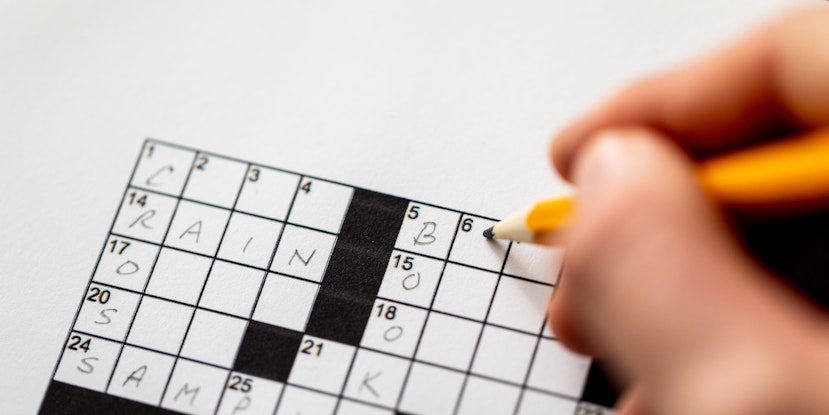Concentration Test: Guide and Tips 2025
Updated November 5, 2024
A concentration test evaluates how well you focus on one task at a time. They have become popular in employment screenings.
High levels of concentration are linked with better productivity and performance. Learning to concentrate will lead to better results in interviews, exams and at work.
Various types of tests will examine your ability to focus. In addition to this, some of these tests will also determine your IQ.
In this article, you’ll learn why concentration is important and what it means. You’ll also find out more about the different types of concentration tests and how you can perform well on them.
A list of frequently asked questions is also provided for reference.
What Is Mental Concentration?
Mental concentration is the ability to focus on one task for af sustained period. Whether that is an object, a thought or an idea, mental concentration determines how long you can fixate on this one subject.
Most people use the term ‘attention span’ when referring to mental concentration. When we become distracted, our attention is diverted toward another task or object.
People who struggle to attain a level of mental concentration are often led by objects or thoughts that are more pleasurable in the short term.
For people who have addictive tendencies, maintaining a level of mental concentration may be difficult because of the pull toward more pleasurable activities.
Similarly, people with attention deficit hyperactivity disorder (ADHD) struggle to attain interest in a subject that is not immediately rewarding.
To understand how well we can concentrate over a sustained period, we must look at how activities impact our brain’s reward system.
The dopaminergic pathway is the system in the brain that regulates the release of dopamine between neurons. Dopamine is the chemical we all release when we repeat reward-related behaviours.
Practice Concentration Test with JobTestPrep
There are four different dopaminergic pathways, and each one has its role in the release of dopamine from different tasks.
- The Mesolimbic Pathway
- The Mesocortical Pathway
- The Nigrostriatal Pathway
- The Tuberoinfundibular Pathway
When we exercise, eat food or complete difficult tasks, dopamine is released that makes us feel good. The purpose of this release is to reinforce habits or behaviours.
However, dopamine is also released when we carry out pleasurable tasks or impulsive habits. Drinking or indulging in video games releases dopamine, sometimes at much higher levels than the levels associated with positive behaviour.
When we focus on pleasurable activities, it can be easy to concentrate on them for a long time because of the ways they immediately activate the release of dopamine.
However, concentrating on tasks like work or an essay is more difficult, because we do not receive the instant release of dopamine.
When we are discussing attention span or mental concentration, we are not usually referring to how well we can focus on immediately rewarding tasks. Rather, we are looking at how well an individual can focus on tasks that release dopamine after a longer timeframe.
As we become adults, our attention span increases, allowing us to concentrate on tasks for longer. The average attention span of an adult is 20 minutes in one sitting, yet this can be utilised repetitively over five to six hours.
For instance, you may be able to focus on reading for twenty minutes, but after this period you will notice your thoughts and impulse leaning toward other activities. However, this does not mean that you cannot take a break and then resume the task you must focus on.
The Pomodoro technique utilises attention span by dividing working blocks into 25 minutes with a five-minute break.
There are ways to maximise your attention span, with some of the main methods being discussed below. If you want to be productive, increasing your ability to concentrate is essential.
What Is a Concentration Test?
A mental concentration test will evaluate how well an individual deals with a task when there are distractions present.
People taking concentration tests are asked to either complete a thought or solve a problem in the presence of something irrelevant.
There are many different types of concentration tests, but the main ones usually consist of diagrams or non-linear assessments.
You may be asked to identify the number of times a pattern repeats itself or the route through a maze. Whatever the task is, the individual is being tested on how quickly they can perform a repetitive task.
Completing a test with a high level of accuracy quickly points toward the ability to concentrate. In contrast, if you take a long time to answer questions, and you fail to provide the correct answers, then this suggests you cannot concentrate for a sustained period.
These types of tests also examine the intelligence of an individual, as they are problem-solving-based questions.
Tests for concentration and attention have become a popular part of employment screenings. Companies looking for data analysts, researchers and editors may use these tests because the roles require a strong attention to detail.
Popular Attention and Concentration Tests
Group Bourdon Test
The Group Bourdon test is a psychometric examination that is used mostly in the transportation industry. If you have ever applied for a job as a train driver or subway operator, you have likely encountered the Bourdon test.
Along with concentration, the Bourdon test measures the vision, speed, accuracy and vigilance of an individual. The main aim of the test is to find a group of four dots amongst different distractions and constellations of dots.
You can take the test via paper or online, and you do not need any prior qualifications.
Each table in the test consists of 16 rows of dots, and in each row, there are 25 groups of dots. The quicker someone can find the right constellations with the correct accuracy, the better their results will be.
It is only a short test, and candidates are only given 10 minutes to find all the correct constellations.
The Safe Concentration and Attention Test (SCAAT)
The SCAAT test is an examination that is used in safety roles and is applied to many different industries.
In contrast to the Boudon test, the SCAAT test is used to examine concentration over a longer period. The SCAAT is administered in the same way.
Anyone taking the SCAAT test will also have to locate identical shapes and patterns. However, the test contains three sheets of paper and candidates are given one minute to complete each sheet. If you fail to complete a sheet, the test will move on automatically to the next page.
You are not expected to reach the end of a sheet. Rather, the aim is to identify as many correct patterns as possible.
Unlike the Bourdon test, the shape or pattern that must be identified will be changed with each page.
If you need to prepare for a number of different employment tests and want to outsmart the competition, choose a Premium Membership from JobTestPrep.
You will get access to three PrepPacks of your choice, from a database that covers all the major test providers and employers and tailored profession packs.
MentalUP Concentration Tests
MentalUP is an educational tool designed primarily for children. The platform includes over 100 brain exercises that improve memory, focus and analytical thinking abilities.
The games can be accessed via a smartphone, tablet or laptop. With a premium account, a subscriber can get access to over 200 mentally stimulating exercises.
To improve mental cognition, MentalUP challenges you to test your concentration for 20 minutes a day.
There are many types of concentration and attention-based games, and all of them are designed to be both fun and challenging.
Some of the tests on MentalUP include:
- The Egg Test – Find the hidden egg between the rabbits in the picture
- The 4-Leaf Clover Test – Find the four-leaf clover between the piglets
- Find the Cat Test – Find the hidden cat amongst the owls
- Find the Letter Test – Within the coloured dots, identify the letter
- Hidden Panda Test – Amongst the elephants, identify the hidden panda

How to Improve Your Concentration
Step 1. Concentration Games
Improving your attention span takes time, and the best way to work on this is to play concentration games.
Concentration does not require any prior knowledge and concentration games are easily accessible.
Crosswords and word searches can also be categorised as concentration games, as you are working on the same cognition skills.
As you become used to playing concentration games and your attention span increases, you can begin to take concentration and focus skills tests that have a higher level of difficulty.
Usually, concentrate work on the same principle. You must identify a pattern or an anomaly amongst a distraction. Harder tests will either increase the size of the distraction or minimise the size of the object you must find.
Like learning a language or developing a habit, maintaining a good level of concentration requires daily practice.
Step 2. Exercise
Working out, going for a run or even doing yoga will work the same skills associated with concentration.
Exercise will also decrease your stress levels as it reduces cortisol levels – the primary hormone associated with stress – in your bloodstream.
With a reduced level of stress, you can focus on work tasks and things on the to-do list that you may consider to be mundane.
Daily exercise will also improve your health and will compound good habits. For instance, your sleeping pattern will improve with regular exercise.
Step 3. Meditation
Being present will help you to focus on one task at a time. Learning how to meditate will eliminate distractions.
Meditation is also a strong tool for reducing anxiety. If you feel nervous or apprehensive about a task, then it can be difficult to finish it.
Imposter syndrome appears when you do not feel you have the adequate skills or knowledge for a certain position. If you can learn to meditate, you can begin to identify irrational fears and therefore concentrate on the task at hand.
Improving your attention span will also allow you to meditate for longer. Positive habits will reinforce other positive behaviours that are intrinsically linked.
Step 4. Diet
The food you eat and the times you eat will impact your concentration levels.
Some foods will naturally improve your cognition abilities if you eat them for a sustained period. For instance, oily fish is high in omega-3 fatty acids, which will sharpen your memory.
However, some foods will cause brain fog. When you suffer from brain fog, you will find it difficult to maintain your attention and you will have little to no motivation.
Foods high in sugar and carbohydrates may cause brain fog if you eat excessive amounts.
Your body will dictate what diet is best suited for you. Some people prefer to eat carbohydrates only in the morning, whilst others have removed them from their diet.
To understand how your diet impacts your attention span, observe how long you can focus on one task after you have had a meal. After you have done this, identify what foods have either increased or decreased your ability to concentrate.
Step 5. Multitasking
Some people can balance different tasks at the same time, whilst others may work better when they place all their attention on one task.
Concentration tasks are designed to make you focus on one simple task at one time. For most people, it is best to eliminate distractions to complete the task in front of them.
Figure out what strategy works best for you. It is advised that you focus on the most difficult tasks when you have the highest levels of concentration.
Step 6. Therapy
Like meditation, therapeutic interventions can help you understand the roots of fear and anxiety.
Talking therapies like cognitive behavioural therapy will allow people to observe how they behave when put under different forms of pressure.
When you need to complete a task, your thoughts may veer elsewhere, reducing your ability to concentrate.
Therapies promote mindfulness, honesty and the ability to not indulge in thoughts. These are essential for improving your attention span.
How to Do Well on Concentration Tests in 2025
Time
If you can accurately answer the questions quickly, then you will generally achieve a high score on any concentration test.
The aim is to identify the pattern or rule as quickly as possible. However, it is better to ensure that you have the right answer.
Try to find a balance between accuracy and speed.
Focus
Concentration tests force the user to concentrate on one task. You must be able to focus to avoid any distractions.
Being present and prioritising the test will help you focus on the task. Try not to have any other websites open other than the concentration test if you are completing it online.
Also, ensure you eliminate any distractions in your environment. Most concentration tests do not take long to complete, so you will not need an hour to complete one concentration test.
Find a quiet room or space to take the test, and remove any devices like a phone that will cause you to procrastinate.
Instinct
Concentration tests do not require any revision or deep understanding. The task is very simple for most tests. as you are being tested on the ability to identify a pattern quickly.
Trusting your instinct and being confident with your answer will help you navigate a concentration test.
Do not overthink the task and go with your gut when answering the questions. If you second guess your answers, you will lose time.
Frequently Asked Questions
A concentration test will examine your ability to focus on one task for a sustained period. You must either identify a pattern or a rule and then find where this is present amongst a distraction. The aim is to accurately find this as quickly as possible.
Concentration tests are relatively straightforward. They do not require revision or any prior knowledge to take them. However, if you struggle to focus on one task for a long time, then you may find concentration tests to be difficult.
Various types of concentration tests can be found online or in other sources. For instance, newspapers often include games that measure the same cognition skills needed for success in a concentration test.
You can find online examples for children at MentalUP and Psychometric Success for adults.
Most concentration tests will require you to just answer one question, but you may have to answer the same question repetitively.
For example, the Group Bourdon test requires those sitting the test to find a constellation of four dots, but you must do this for 16 rows.
Focus, attention to detail and memory. Because these skills are being measured, concentration tests are often used in employment screening procedures for jobs that require meticulous attention.
Occupations in analysis, editing and research are some of the areas that require good levels of concentration.
A good score on a concentration test is dependent upon your accuracy and the speed at which you answer the questions.
If you are applying for a job that requires strong attention to detail and the ability to focus on one task at a time, then you will likely have to sit a concentration test.
Pilots, train drivers, data analysts, subway operators and heavy goods vehicle drivers are areas where you will encounter a concentration test.
If you are taking a concentration test online, then you will receive your results immediately after taking the test.
However, concentration tests like the SCAAT and the Group Bourdon test can be administered by paper. In this case, you may have to wait until your results are tallied up before you receive a final result.
Samples can be found online at JobTestPrep. Most concentration tests follow the same principle, so when you have worked through a few samples, you are likely ready to sit a full test.
Yes. Although the SCAAT test and the Group Bourdon test are often administered on paper, it is more likely that you will be given a concentration test online. They are very easy to find and many of them can be taken for free.
Unlike other examinations, concentration tests have to be viewed as a cognitive skill or habit.
Like learning a language, the only way you can get better at concentration tests is to repetitively take them. It is advised that you take as many as possible as part of the practice process.
If you are taking a concentration test as part of an employment application, then you will have to consult the company you are applying for if you want to take the test again.
Some of the best guides available can be found on YouTube and online. These guides will point you toward practice tests and will inform you on how you can improve your concentration through changing daily habits. Harvard Health Publishing and James Clear are two guides that can be accessed online for free.
Final Thoughts
The ability to concentrate and retain focus can be the difference in landing a career. Improving your basic cognitive skills will give you more opportunities, and they will also improve the work that you do.
Use this guide to analyse how you can improve your attention span. Take practice tests and identify where you need to make changes in your life. Concentration is a valuable life skill and is needed to be successful in most jobs.






